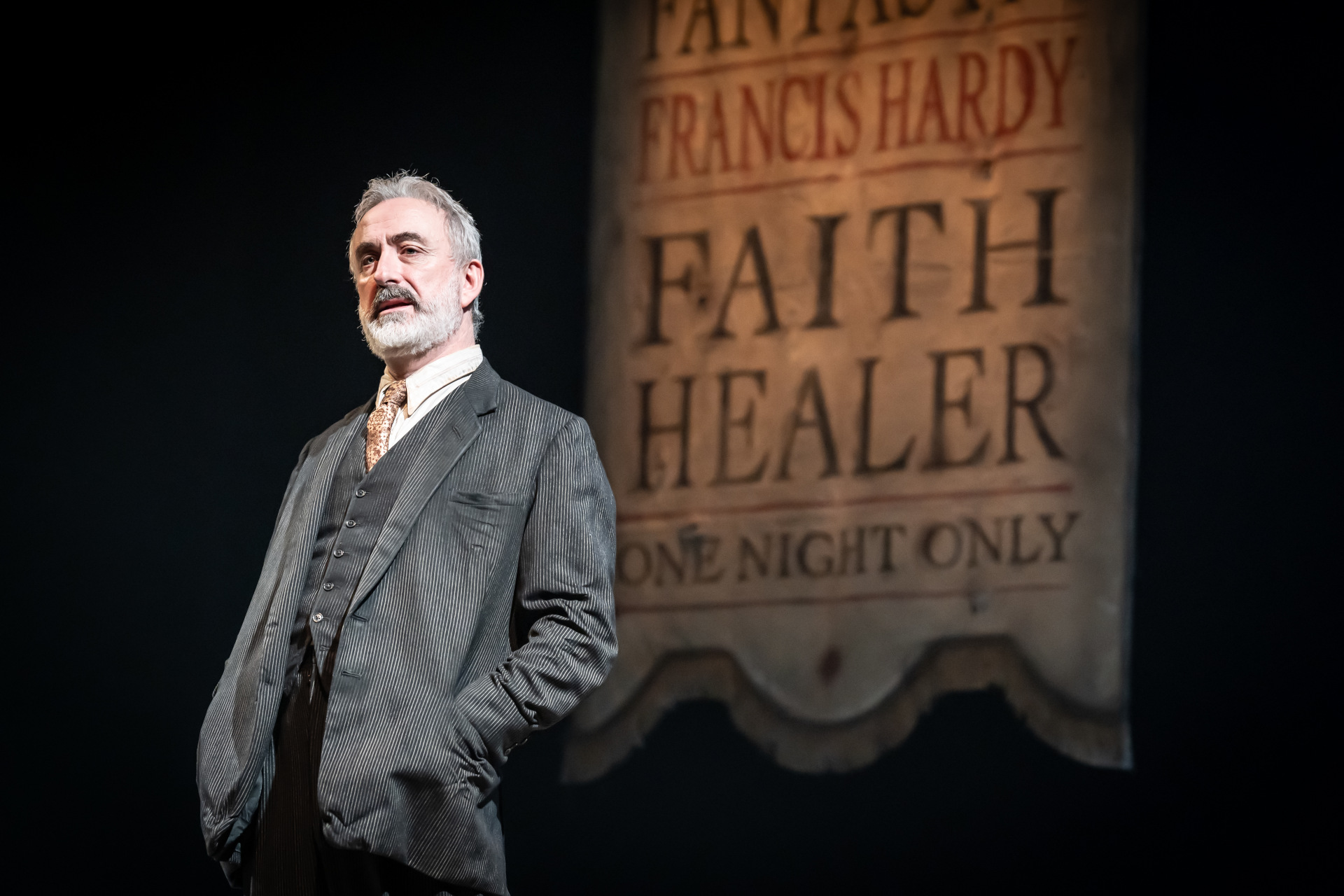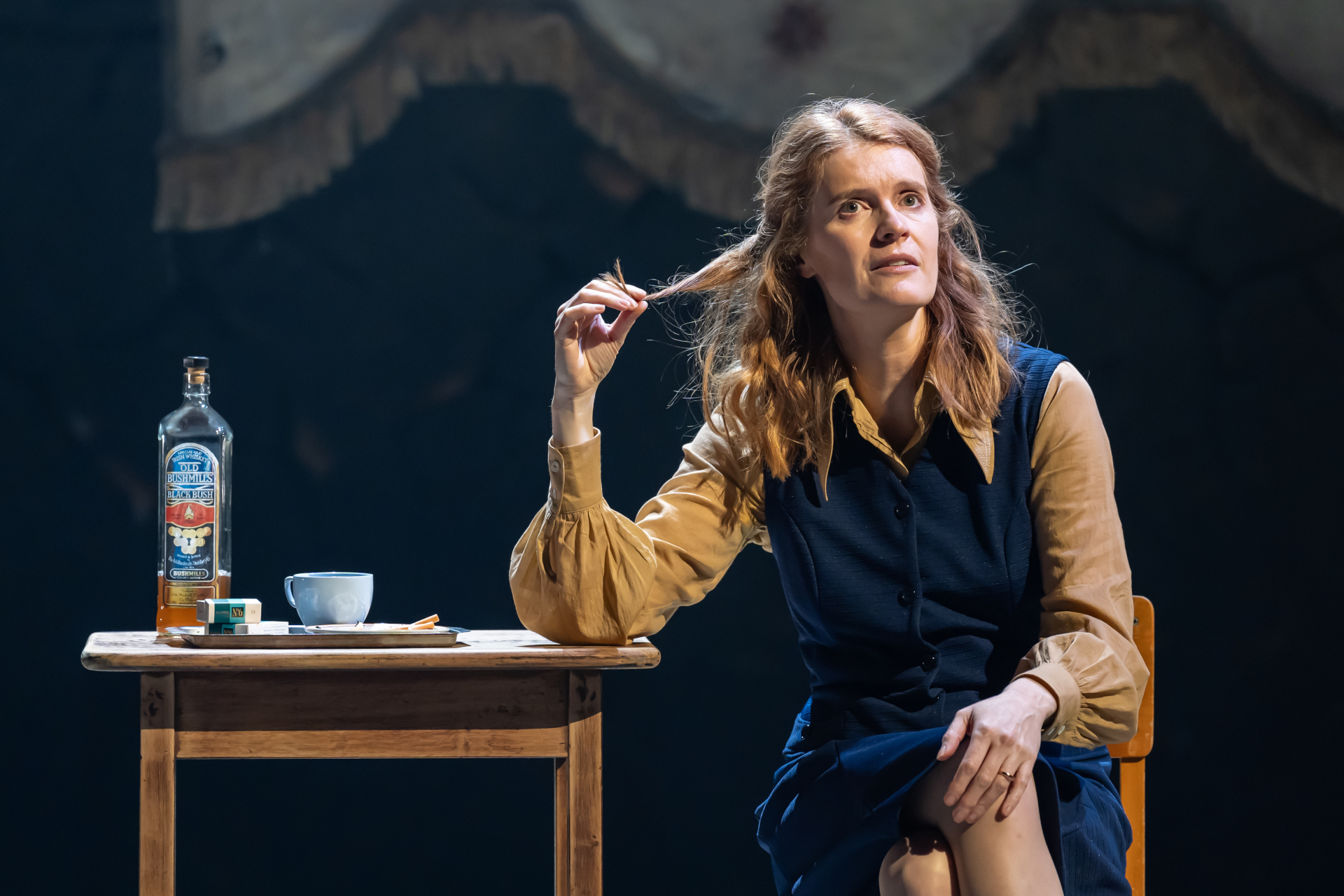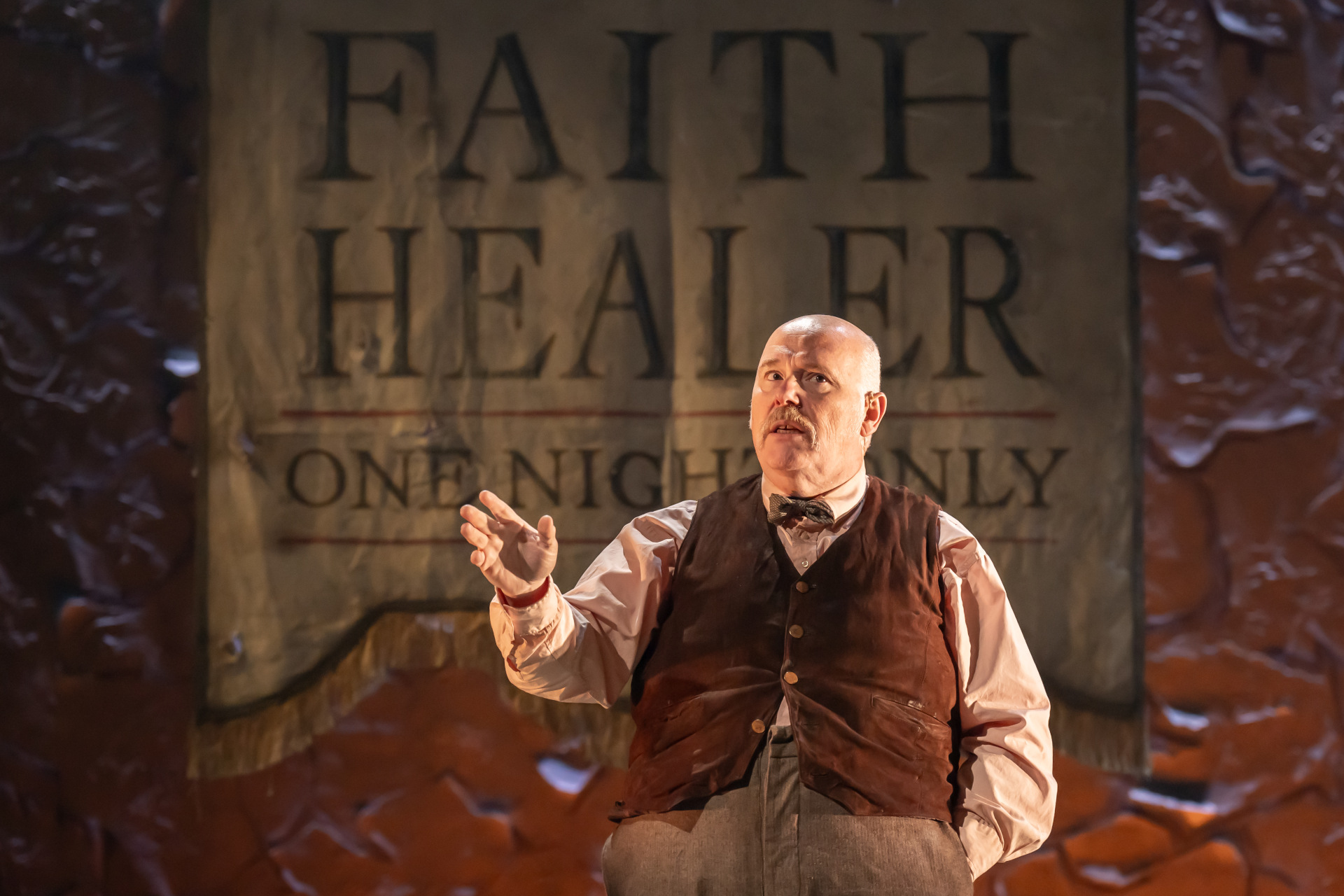Review: Faith Healer At The Lyric Hammersmith Theatre
By
2 years ago
Catch this mesmerising production before it's too late

This production of Brian Friel’s Faith Healer is a must-watch, says Caroline Phillips.
Review: Faith Healer
Go and see this production of Faith Healer by Brian Friel, one of the greatest Irish dramatists; it’s mesmerising and moving. It’s a four-scene play in which three characters act out their memories alone on stage —monologues delivered by Frank the faith healer, his wife, Grace, and his manager, Teddy: three unreliable narrators.
On one level, the play is about the nature of faith healing (autosuggestion, placebo effect, paranormal ability? Is Frank a conman, healer or miracle worker?), and hope, gullibility and vulnerability. On another level, it’s about a triangular relationship, one of which is a coercive relationship between husband and wife (to me the most compelling aspect of the evening). It’s also about the frail, biased and individual nature of memory: we ask ourselves who we should believe (like the famous Japanese film Rashomon, with its characters providing subjective, alternative and contradictory versions of the same incident, the murder of a samurai. I kept wondering too how the actors remembered so many lines, an irony given the theme). It can also be seen as Friel’s meditation on the mystery of artistic inspiration and impulse.
Written in the 1970s, during the tension and violence in Northern Ireland — although this isn’t raised in the script — the play is rooted in this specific historical context. The three characters recall travelling Wales, Ireland and Scotland on healing tours when Frank attempts — and frequently fails — to heal the sick and suffering. ‘As their stories interconnect, divert and contradict,’ writes director Rachel O’Riordan, ‘Friel asks us to consider the possibility that there is no universal truth, and that we can only move forward and heal when we let go of the idea of being “right”.’ Although it premiered in 1979, it remains sharply current (even though our psychological understanding, particularly of abusive relationships, has developed over that period).

Justine Mitchell in Faith Healer at the Lyric Hammersmith Theatre. (c) Marc Brenner
Declan Conlon’s performance of husband Frank is confident and persuasive, but I found my attention trailing in his final scene —partly because the energy is disappearing after over two hours, but also because the other two actors are even more compelling. (Although chapeaux off to this consummate professional, Conlon: when an audience member’s mobile rings on his arrival on stage, he waits —and waits — for it to be turned off, and then delivers with devastating aplomb his scripted line, ‘I’d get so tense before a performance.’ And when someone later snores in the front row, he delivers a killer glance, and carries on; a silver audience, yes, but nobody else could possibly have nodded off during this fine production.)
Grace (Justine Derry Girls Mitchell) delivers a stand-out, luminous performance as Frank’s wife, chatting to us beside her bottle of whiskey. Her description of the birth of her still-born baby is unbearably moving, and so too her rendition of the challenges of rebuilding a life after such bereavement. Manager Teddy (Nick Holder) initially offers much-needed light relief, a sort of Shakespearean fool cum garrulous cockney, and then reverts to darkness (which is at the heart of the play) as he provides insights, not least into the couple’s violent relationship. He’s funny, has presence and pulls off his larger- than-life raconteur role. (Although, as an aside, I was distracted by how many bottles of ‘beer’ he managed to pour into his mug. And my one other tiny criticism is that, as he imbibed more and more, he didn’t appear to become progressively more drunk).

Nick Holder in Faith Healer at the Lyric Hammersmith Theatre. (c) Marc Brenner
O’ Riordan’s direction is unimpeachable, coaxing subtle performances and creating a spellbinding evening. The stage set (Colin Richmond) is spare and simple —from a village hall with its fraying banner reading THE FANTASTIC FRANCIS HARDY FAITH HEALER ONE NIGHT ONLY to a desk and drinks cabinet and a wall with peeling paint, through the cracks of which the light shines, finally, at the end — symbolising the decay of memory but with some light pervading, perhaps. It’s a set that could have perhaps done with a bit more money and imagination. The lighting design (Paul Keogan) can either be seen as starkly brilliant or as erring on the side of amateurish and lacking nuance; I tend to the latter. (My plus one, an actor, reckoned a different coloured tinge in the white could have been used, say, to denote a character recalling memories).
There’s something still so unexpected and appealing about visiting a relocated Victorian theatre in the midst of the contemporary urban sprawl of Hammersmith, and it’s great to have a chance to see a tip-top play in London for under fifty quid. Is Frank a miracle worker or mountebank? It doesn’t much matter. Catch this production before it transfers, as it surely must.
Faith Healer is on at the Lyric Hammersmith Theatre until 13 April. lyric.co.uk




















